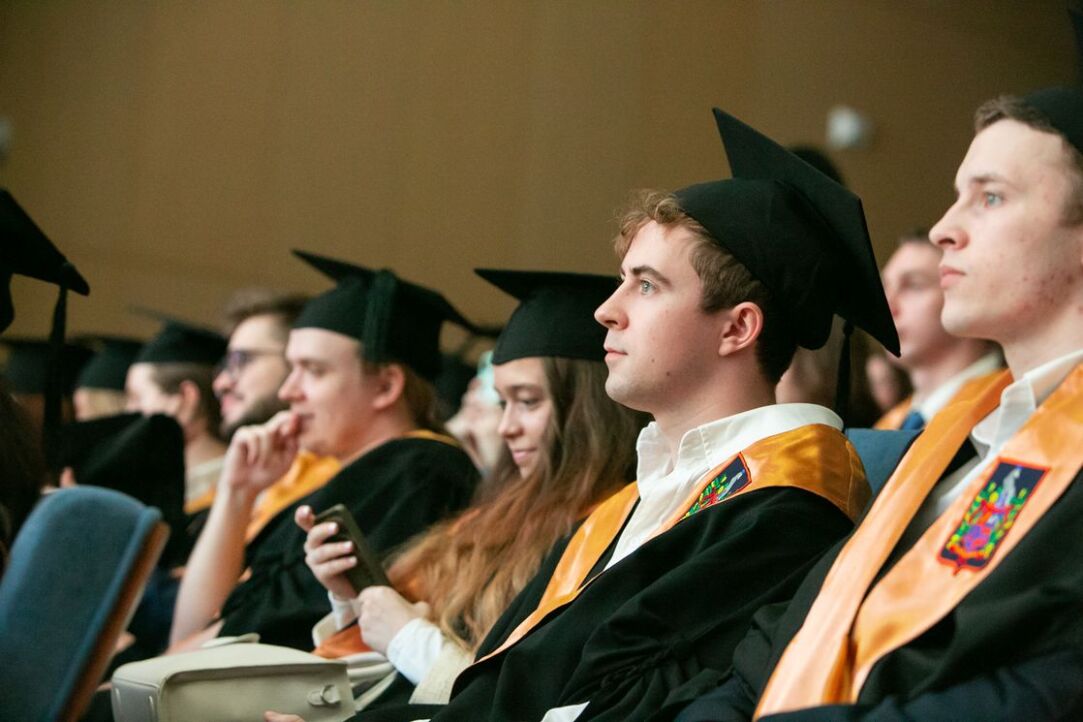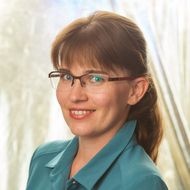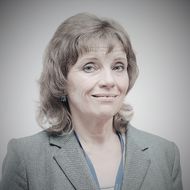First Graduates of the Online Master's Programme ‘Economic Analysis’ Defend Their Theses

The cost of apartments in Vladivostok, the volatility of cryptocurrencies, the consumption of ferrous metals in different countries, the communications of the National Bank of Kazakhstan, the results of state motherhood support measures — these and many other diverse issues were covered in theses by ‘Economic Analysis’ graduates, which they defended in mid-June.
28 graduates successfully completed the online programme ‘Economic Analysis’, with four of them graduating with distinction. Their interests and, as a result, research issues for theses turned out to be extremely wide-ranging. Students searched for ways to increase customer conversion in a mobile application, studied the correlation between the application of financial repression measures and the amount of the country's public debt, assessed the attitude to the Bank of Russia on the data of social networks and Telegram channels, analysed the impact of the coronavirus pandemic on the digitalisation of Russia and European countries, and proved that ESG strategies affect the market capitalisation of metallurgical companies. Many studies required programming skills, big data analysis and working with machine learning algorithms.
Green Energy
Several of the works were co-authored. For example, Ilya Tishchenko and Yulia Egorova studied issues affecting green energy development. They analysed how various factors, including GDP, energy security, and environmental policy, affect the development of green energy in countries around the world. This thesis received a maximum of 10 points (and the students graduated with distinction) and was recommended for publication in an international academic journal.

Elena Vakulenko, the students’ academic supervisor and Professor of HSE Department of Applied Economics
‘Thoughtful and full content in all sections, starting from the introductory part and the problem statement, describing the research framework, is a distinctive feature of this work. The authors thoroughly reviewed the literature in all areas of research, described the theoretical model in detail, and concluded the research with a sophisticated empirical part testing all the necessary prerequisites of the models, checking robustness of the chosen method, and carefully considered the results.’
Ferrous Metals
Another joint work, by Lidia Velichko and Valeria Detkina, was dedicated to the analysis of long-term trends in the consumption of ferrous metals in the economies of countries with different levels of development. The work was supervised by Boris Kuznetsov, Professor at HSE Department of Applied Economics, and devoted to the study of the factors determining steel consumption and the nature of their influence. Metal consumption is growing worldwide, but the correlation between steel consumption and GDP growth is non-linear. The students studied this feature and tried to explain it.

Svetlana Avdasheva, Head of the ‘Companies, Markets, and Public Sector’ programme track
‘The work of Lidia Velichko and Valeria Detkina is a vivid example of the way the outlook of professional economists is required to solve applied problems. They need to know about the sources of growth in countries in the modern world — in which of them growth is based on industrialisation (or reindustrialisation), and in which of them post-industrial industries induce the growth. They need adequate data sources that allow them to formulate and test interesting hypotheses. Finally, they need to master statistical and econometric analysis, allowing them to test alternative hypotheses and verify the stability of the discovered patterns. And then the results obtained allows them not only to describe how the demand for ferrous metals was formed in the past, but also to predict how it will change in the future under different scenarios of country development.’
Inflation and Market Basket
In his thesis Egor Fomin studied the relationship between inflation expectations and the prices of marker goods. To conduct the research, he developed a program that iterates through multiple sets of consumer baskets and compiles synthetic baskets-indexes of marker goods. The author tried to identify the groups of goods whose price changes most strongly affect inflation expectations. These included both durable goods, such as cars and furniture, and daily demand — food and gasoline.

Vadim Grishchenko, the work supervisor, Senior Lecturer at the Joint Department with the Bank of Russia
‘In addition to the relevance of the chosen topic for the implementation of monetary policy, this work highlights the uniqueness of the research (no similar work has been published in Russia before) and the high level of computational complexity. Egor independently developed a programme for automatic sorting and evaluation, during which tens of millions of model specifications are compared with each other.’
‘Economic Analysis’ is the first Russian-language online master's programme in economics. Students gain fundamental knowledge about the methods of market analysis, working on real cases during their studies. Students can choose one of three tracks: ‘Macroeconomics", ‘Companies, markets and the public sector’, or ‘Instrumental methods in economics’. Applicants are required to have good knowledge of mathematics and a willingness to develop in the field of data science.

